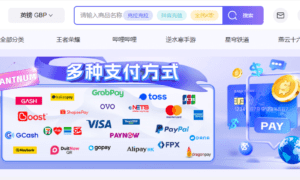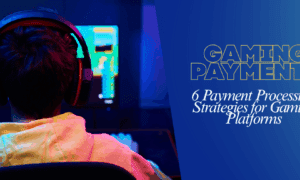With the rise of blockchain technology, a new era of gaming is upon us. The power of the blockchain is revolutionizing the world of online gaming in a secure, transparent, and decentralized way. From in-game assets and currencies to entire game worlds built on the blockchain, the possibilities are nearly endless.
With blockchain gaming, players can enjoy a new level of immersion, interactivity, and transparency with their favorite games. The ability to create truly unique and immutable digital assets gives players a sense of ownership and control that was previously not possible. In-game economies can now be fully player-driven, potentially creating entirely new business models for game developers.
The potential of blockchain gaming is only just beginning to be explored. But with the help of early adopters and pioneers in the space, the future of gaming looks more exciting than ever before.
There are platforms powered by blockchain such as Joystick Games where you can earn money while playing games. You can learn more about the platform.
Now, let’s look at what blockchain gaming is and how it’s changing the online gaming landscape.
What is Blockchain Gaming?
Blockchain gaming is a term used to describe the use of blockchain technology in video games. Blockchain technology allows for the creation of decentralized applications and smart contracts. These can be used to create game worlds that are secure, transparent, and player-driven.
In a blockchain game, players own their in-game assets and can trade them freely with other players. This is made possible by the fact that blockchain-based assets are stored on a publicly accessible ledger that is immutable and transparent. This allows for near-instant transactions and eliminates the need for a central authority.
How Does Blockchain Technology Work In Gaming?
The first and most important thing to understand about blockchain technology is that it allows for a distributed, decentralized ledger. This means that instead of one central server storing all of the information, the data is spread out across a network of computers. This makes the system much more secure. When a new piece of data is added to the blockchain, it is added to the end of the chain, and all of the computers on the network update their copies. This makes it very difficult for anyone to alter the data without everyone else knowing about it.
With a central server, if that server is hacked or compromised in any way, the entire system can be brought down. With a decentralized network, there is no central point of failure, and the system is much more resilient.
Gamers are no strangers to in-game currencies, and many games have their virtual economies. However, these economies are usually completely controlled by game developers and publishers. With blockchain-based games, the in-game economy is decentralized and controlled by the players themselves. This eliminates the possibility of inflation or other manipulations by the game developers and creates a more stable and sustainable economy.
In a traditional game economy, if the game developers want to increase the money supply, they can print more in-game currency. This often leads to inflation, as too much money in demand and few goods drive up prices. With a decentralized economy, the supply of currency is fixed and determined by the protocol, and there is no way for the game developers to manipulate it.
Blockchain technology creates a decentralized marketplace for in-game items. Players can sell, trade, or rent their virtual goods and receive payments in cryptocurrency. This would eliminate the need for third-party marketplaces, which often take a cut of the proceeds.
What are the Benefits of Blockchain Gaming?
There are many potential benefits of blockchain gaming, including:
- Enhanced Security: Blockchain technology is very secure, and this carries over into blockchain games. With player-owned assets and a decentralized economy, players have complete control over their in-game items and money.
- Transparency and Fairness: The use of blockchain would make game worlds more transparent and fair. With all transactions being recorded on a public ledger, it would be challenging for game developers to manipulate the game world.
- Player Owned Data: In a traditional game, the game developers own all of the data. With blockchain games, the players own their data. This would allow them to sell, trade, or rent out their in-game items as they please.
- Increased Immersion: The use of non-fungible tokens allow for a deeper level of player interaction and immersion. NFTs represent anything from in-game items to digital art that can be sold, traded, or rented out, giving players a more significant stake in the game world.
- Instant Transactions: With blockchain technology, transactions are processed instantly without needing a third-party payment processor. This would allow for a more seamless gaming experience.
The Future of Blockchain Gaming
The potential applications of blockchain technology in gaming are vast, and the industry is only beginning to explore its possibilities. We are likely to see more and more games incorporating blockchain technology in the future as developers start to realize its potential. As the technology matures, we will also see more complex and ambitious projects in the future.



































